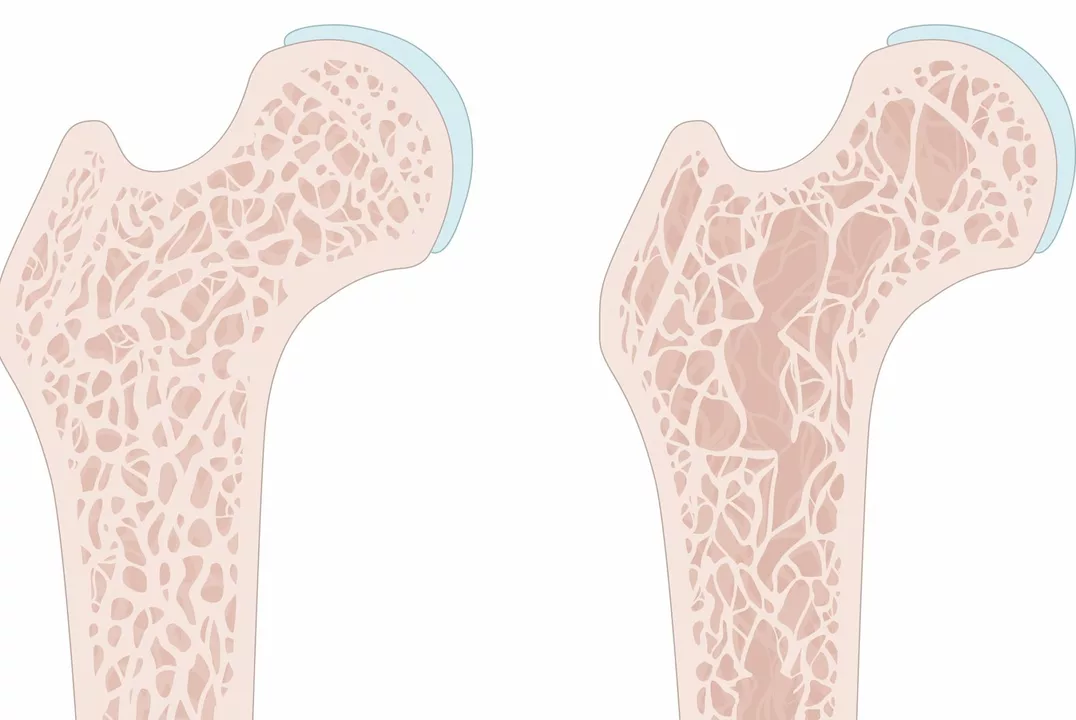Osteoporosis Risk: What Raises It and How to Lower It
Worried about weak bones? Osteoporosis risk matters because low bone density raises your chance of fractures from everyday falls or minor bumps. You don’t need to be elderly to start protecting your bones—small, focused actions now reduce problems later.
Common Risk Factors
Age and sex: Women over 50 and men over 70 face higher risk. After menopause, women's bone loss speeds up because estrogen drops.
Family history: If a parent broke a hip, your risk goes up. Genetics play a clear role.
Body frame and weight: Small, thin people have less bone mass to lose. Very low body weight increases risk.
Medications and conditions: Long-term steroids, some anti-seizure drugs, and certain cancer treatments weaken bone. Health issues like rheumatoid arthritis, thyroid disorders, and chronic kidney disease also raise risk.
Lifestyle choices: Smoking speeds bone loss. Drinking more than two alcoholic drinks a day harms bone repair. Lack of exercise, especially weight-bearing activity, means bones don’t get the signals to stay strong.
How to Lower Your Osteoporosis Risk
Get tested: Ask your doctor about a DEXA scan to measure bone density. It’s a quick test and tells you where you stand. Repeat testing timing depends on results—your doctor will say how often.
Eat for bone health: Aim for 1,000–1,200 mg of calcium daily depending on age and sex. Get vitamin D through safe sun exposure, foods, or a supplement (many need 800–2,000 IU daily). Focus on dairy, leafy greens, fortified foods, and fatty fish.
Move more the right way: Do weight-bearing exercises like brisk walking, hiking, or dancing 3–5 times a week. Add resistance training (bands, weights) twice a week to build muscle and protect bone. Balance work—yoga or tai chi—lowers fall risk.
Fix daily risks at home: Remove loose rugs, add grab bars in the bathroom, improve lighting, and keep pathways clear. Simple changes cut the chance of a fall that could break a bone.
Review meds with your doctor: If you use steroids or other bone-impacting drugs, ask about alternatives or protective measures. For high fracture risk, effective medications exist—bisphosphonates, denosumab, and others—but they carry pros and cons. Talk risks and benefits with your clinician.
Quit smoking and limit alcohol: Stopping smoking and cutting back on booze both help bone repair and overall health. Even reducing to one drink a day is better for bones than heavy drinking.
When to see a doctor: If you’ve had a low-trauma fracture, have a family history, are over recommended screening ages, or take long-term steroids, schedule a bone health check. Early action prevents many fractures.
Bone health builds over time. Small, consistent steps—testing, nutrition, exercise, and home safety—make a big difference in lowering your osteoporosis risk and keeping you active longer.

The Effects of Ezetimibe on Bone Health and Osteoporosis Risk
As a blogger focused on health-related topics, I recently came across some fascinating research on the effects of Ezetimibe on bone health and osteoporosis risk. Ezetimibe is a cholesterol-lowering drug that has been found to have a positive impact on bone health. Studies have shown that this medication can help promote bone formation, reduce bone resorption, and potentially lower the risk of osteoporosis. While more research is needed to confirm these findings, this new information could potentially bring hope to millions of people suffering from osteoporosis. It's always exciting to learn about new developments in the world of medicine, and I look forward to keeping my readers updated on this topic.
Read More